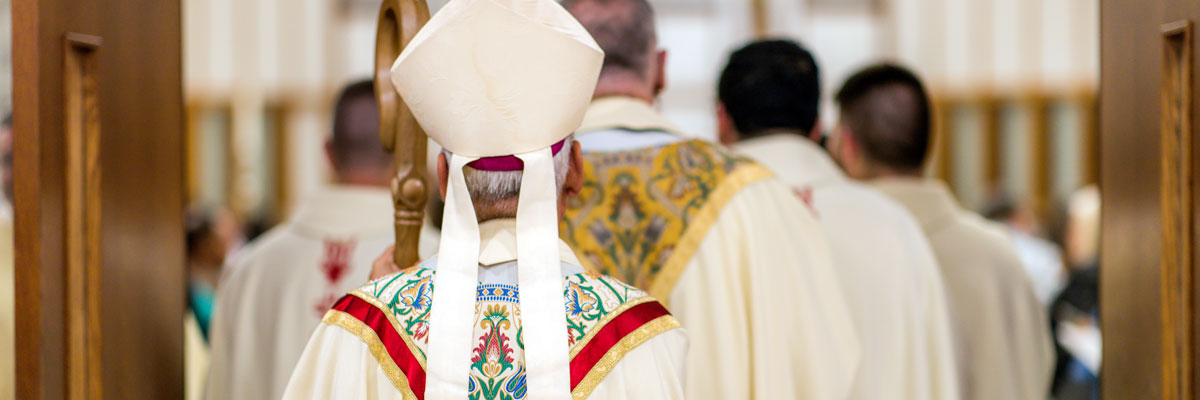Official Website of the
Catholic Diocese of Little Rock
Humans cannot bring about their own salvation; only God saves
Published: September 2, 2006
By Charles T. Sullivan
Soteriology (Greek, soter “salvation” and logos “word about”) is the critical reflection on the salvific (saving) activity of Christ. This particular branch of Catholic theology asks: What does it mean to say that Christ saved us? And why do we even need to be saved? Salvation history begins in the Old Testament after Adam’s fall with God’s promise of a Savior who would overcome the Evil One and re-establish harmony in the cosmos. Salvation is the final triumph over sin and death and, therefore, the ultimate accomplishment of God’s purpose for creation. In Christ and through the Holy Spirit, God restores and reconciles a broken world. The entire content of Christ’s message is one of the salvation of mankind. Even the name “Jesus” means “God saves.” The Gospel is called the “message of salvation” (Acts 16:31) and this salvation is a gift brought about solely by God’s almighty power. (Romans 1:16) Men and women by and of themselves have no means of bringing about their own salvation. Neither faith (Romans 10:9-13) nor conversion (Acts 3:19) nor reception of baptism (Acts 22:16) nor moral constancy throughout life (2 Thessalonians 2:10) can gain for one the right to salvation, though all of these are signs and forerunners of attainment through the efficacy of the redemptive sacrifice of Christ. Christ alone can bring about universal and definitive salvation. This entails reconciliation, pardon for sin and a share in the divine life of the Triune God. God’s salvific will has been realized perfectly in Christ in whom “… God recapitulates all of his history of salvation on behalf of men.”(Catechism of the Catholic Church, 430) Christ is savior as both priest and victim — who with his own blood takes away our sins and establishes a new covenant. The blood of the Son, offered in our place through his sacrifice of love and obedience, perfectly reconciles the world with God. Atonement is the forgiveness of sin and expiation of human guilt through Jesus’ loving fidelity expressed perfectly in his suffering, death and resurrection. The fact that the crucifixion took place at the time of the Jewish Passover encouraged the first Christians to recognize Christ as the Paschal Lamb who had been sacrificed on behalf of the people. (1 Corinthians 5:7) Connecting his death with another important Jewish feast, the Day of Atonement or Yom Kippur, they understood Jesus to be the great high priest and unblemished offering whose unique self-sacrifice had once and for all absolved sin and brought about a new relationship (covenant) between God and humankind. (Hebrews 4:14) St. Anselm of Canterbury in his work “Cur Deus Homo” (“Why Did God Become Man”) presented the classic treatise devoted explicitly to the meaning of atonement: Christ freely accepted suffering and death to make amends for the offense to the divine honor caused by human sin. Because of his divinity, humanity and sinlessness, Christ (only Christ) could satisfy on humanity’s behalf the infinite dishonor to God that is sin. There is a danger in this classic theory to view God as legalistic, demanding and punitive. We must remember that God instituted this plan freely because of his great love for men; and thus any consideration of the passion and death of the Lord must always be understood in light of his resurrection. Charles T. Sullivan, a member of St. Bernard Catholic Church in Bella Vista, has a master’s degree in theology from the University of Dallas.









